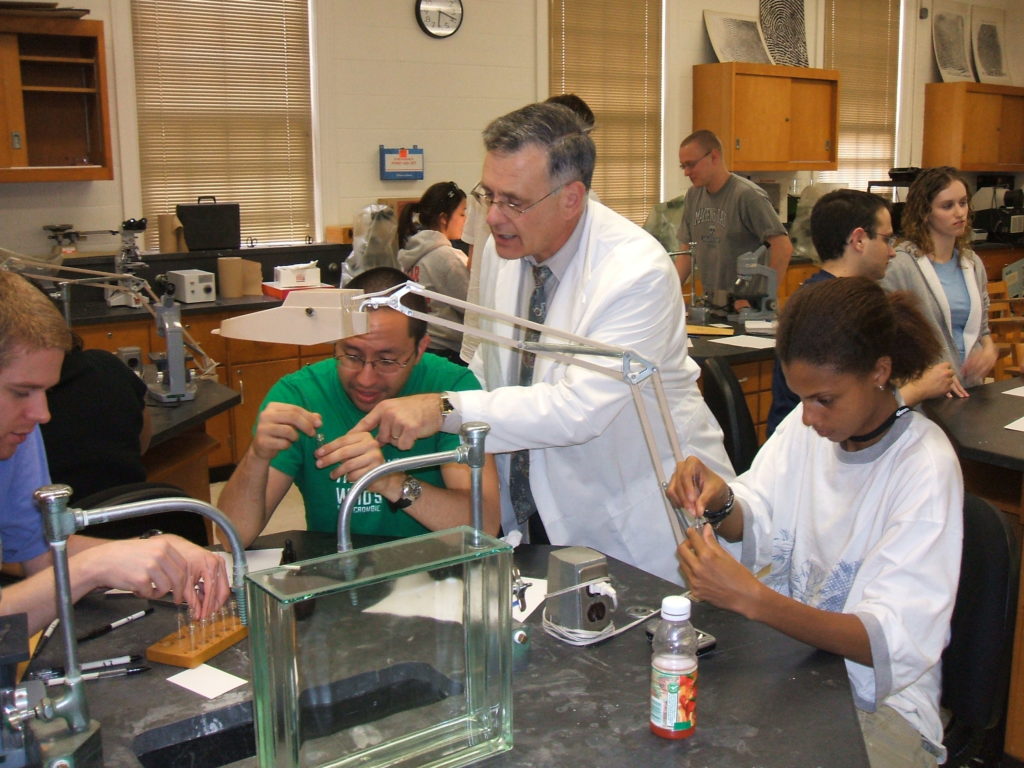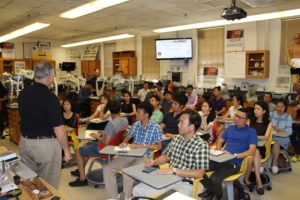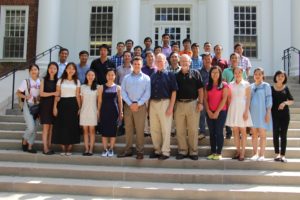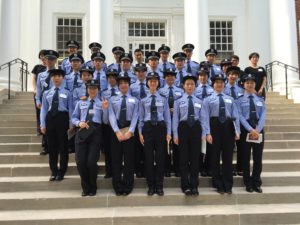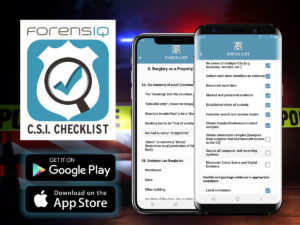FORENSIC EVIDENCE AND CRIME SCENE INVESTIGATION TRAINING — Topic modules:
- Quality and Usefulness of Physical Evidence
- Crime Scene and Preservation of Physical Evidence
- Fingerprint Identification, Analysis and Processing
- Firearms and Toolmarks Identification
- Forensic Hypnosis
- Questioned Documents
- Sex Offence Investigation
- Death Investigation
DURATION OF TIME FOR EACH MODULE: 2 To 4 hours each
NUMBER OF STUDENTS: 10 TO 25 PER CLASS
INTENDED TARGET GROUP: Security officers, uniformed police officers, and investigators. *Curriculum geared to each student group for their needs.
POLYGRAPH AWARENESS TRAINING – “Truth and Lies of the Polygraph” — A presentation that will eliminate the mystery, misconceptions, and anxiety from the whole polygraph process. ForensIQ’s Tom Mauriello, a former Chief of Polygraph for a U.S. Department of Defense Polygraph Program, tells the “truth,” as he presents the polygraph process as it really is. He presents the:
- DOs and DON”Ts when preparing for the examination;
- answers all the FAQs related to the polygraph process, and
- real polygraph questions that are asked during a clearance screening polygraph examination.
The result for those who attend this entertaining presentation is that they will be better prepared to consider, consult and take a polygraph examination when the time comes to tell the “truth.” HONEST!
PRESENTATION TIME: 30 to 90 minutes.
NUMBER OF PARTICIPANTS: No maximum number within a single time and location. Video-teleconferencing additional.
INTENDED AUDIENCES:
- Any company or government agency preparing to have their employees go through a screening polygraph interview.
- Legal professions who use the polygraph or have clients who take polygraphs.
- Criminal justice and law students.
- Public interest groups
FORENSIC EVIDENCE AND CRIME SCENE INVESTIGATION TRAINING — Topic modules:
- Quality and Usefulness of Physical Evidence
- Crime Scene and Preservation of Physical Evidence
- Fingerprint Identification, Analysis and Processing
- Firearms and Toolmarks Identification
- Forensic Hypnosis
- Questioned Documents
- Sex Offence Investigation
- Death Investigation
DURATION OF TIME FOR EACH MODULE: 2 To 4 hours each
NUMBER OF STUDENTS: 10 TO 25 PER CLASS
INTENDED TARGET GROUP: Security officers, uniformed police officers, and investigators. *Curriculum geared to each student group for their needs.
COMPUTER FORENSIC TRAINING: 3 DAY WORKSHOP THAT CAN BE TAILORED TO THE CUSTOMER’S NEEDS
Paul Woodie, Computer Forensic Expert and new ForensIQ, Inc partner, teaches a three-day, hands-on course that delivers information about identity theft, viruses, malware, and cyber intrusions into our critical infrastructures (e.g., power grid, financial systems, etc.). These incidents are so common that we hear about them every day. Depending on the target, they can have devastating personal and national security consequences. It also covers computer and network forensics, whereby evidence of crimes can be recovered from computer systems. The course addresses various threats to computer systems and networks, and explains their implications on both an individual and national level. It also covers the growing body of laws, regulations, directives, and guidelines that guide both our personal, organizational, and national response to this significant threat to our well-being. Through lecture, classroom discussion, and computer demonstrations, students see examples of how to deal with threats using the three types of countermeasures defined by the National Institute of Standards and Technology (NIST). Those countermeasures are: Management (what organizational steps can address this problem most effectively?), Operational (how can we respond to day-to-day computer incidents?) and Technical (how do we configure our computer and network systems for maximum resistance to these problems?). Each student is assigned a computer and will apply what they have learned through classroom exercises. Exercises include testing password strength, identifying network vulnerabilities, sniffing/eavesdropping to compromise information, and recovering valuable information and evidence through digital forensics. Students will return to their own work environment ready to implement their new knowledge.
The course includes tools that will be used in class, and that the students will take with them to enhance the cybersecurity posture of their own unique computer and network environment. A list of resources is provided to help increase knowledge, skills, and abilities in the important field of cybersecurity.
Following are some recent workshops presented by Professor Mauriello
August 18, 2016 – Tom and his colleague Rusty Capps, CT/CI Training Partners LLC presented a day long seminar to 30 mid-level police officers and graduate students from the People’s Police Academy of Vietnam. Tom’s topic presented was entitled, “Criminal and Crime Scene Investigations and the Application of the Forensic Sciences,” and Rusty’s topic was “ISIS and the Lone Wolf Threat” (Counterterrorism). The seminar was hosted by the University of Maryland College of Behavioral and Social Sciences – Office of International and Executive Programs (OIE
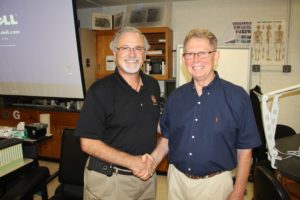
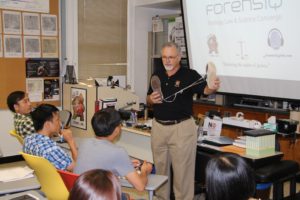
Tom and his colleague Rusty Capps
July 11-19, 2016 – Tom presented a two week non-credit workshop for 30 Chinese Police Science students on the University of Maryland, College Park Campus during the two week period, July 11-22, 2016. The students were undergraduates enrolled in Zhejiang Police College in China He presented material about the US criminal justice system in general and then focused in on police and forensic activities. The workshop was hosted by the College of Behavioral and Social Sciences – Office of International and Executive Programs (OIEP).


